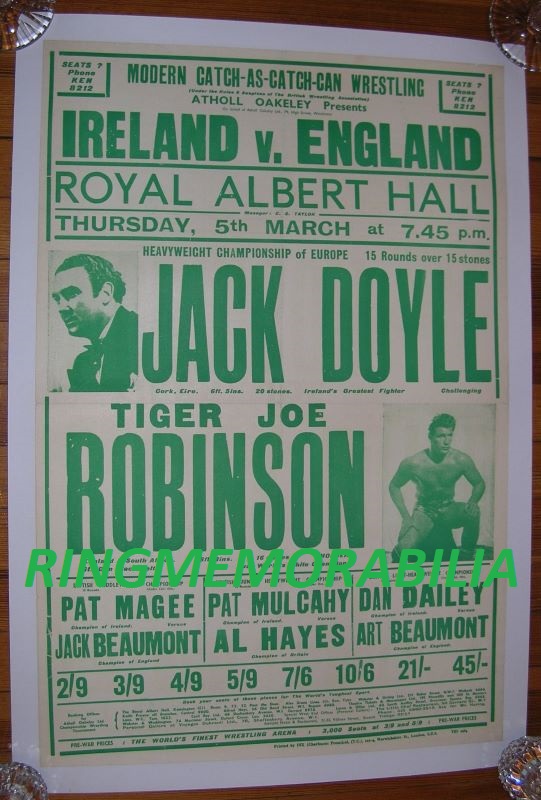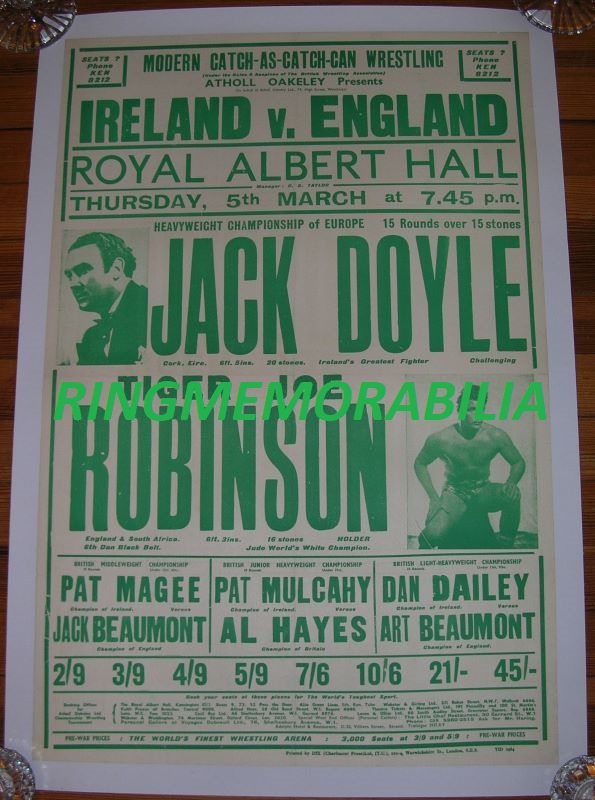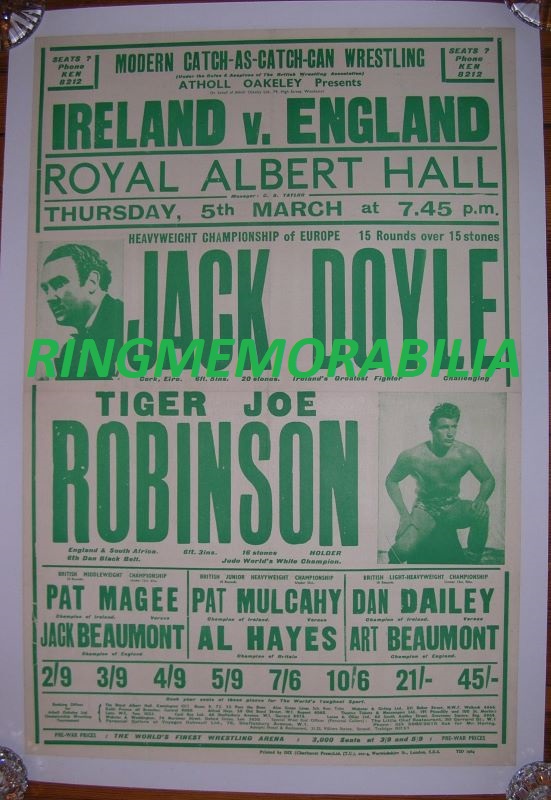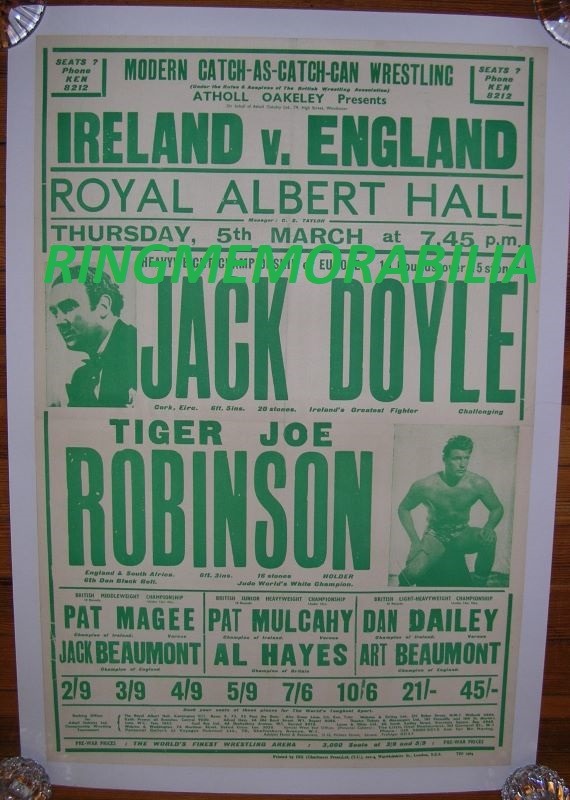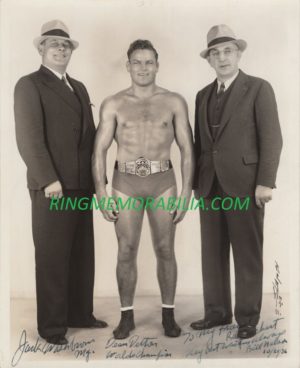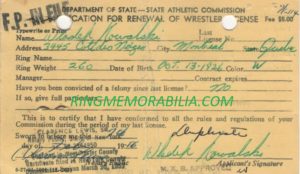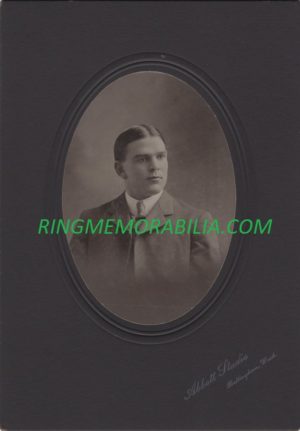Description
Jack Doyle vs. Tiger Joe Robinson Original Wrestling Poster Royal Albert Hall – 1953
Doyle was born into a working-class family in Cork Ireland in 1913. At six feet five inches, he was good with his fists and in 1929, joined the Irish Guards regiment of the based in Wales. There he excelled at boxing and was famed for his strong hooks that won him the British Army Championship. A record of 28 straight victories, 27 by knockout, brought him to the attention of promoter Dan Sullivan. He turned professional and notched up 10 consecutive victories, all inside two rounds, making him the hottest thing in the sport. In July 1933, at the age of 19, he missed out on the British Heavyweight title to the holder, Welshman, Jack Peterson. Witnesses claim that he had done most of his warming up in a pub not far from the bout. Within the opening seconds he knew he was in trouble and decided to take the easy way out. He was disqualified for repeatedly punching low.Shortly after, his singing voice was discovered by Dr. Vincent O’Brien, voice coach to Count John McCormack and soon his soft tenor voice and handsome looks were selling out the London Palladium and the Royal in Dublin. Doyle was subsequently signed up by Decca Records. In 1934, Doyle travelled to the United States and several 78 rpm records were produced including the popular “South of the Border” a duet recorded with his then wife Movita.
But his love for the drink and generous nature soon started to take its toll on his health. In America he carried on his high living of gambling, women and drink. His good looks and deep pockets opened up the party circuit to him and he acted in several Hollywood films. While in the United States he continued to box, taking on Buddy Baer in August 1935. As in his fight against Petersen, it is said that Doyle had consumed the best part of a bottle of brandy before the bell rang and was in no fit state to stand. He was knocked out in the first round.
He died in 1978 at St. Mary’s Hospital in Paddington, from cirrhosis of the liver. At the time it seemed he would be buried in a pauper’s grave in London. However, when news of his death reached Ireland a number of members of the Cork Ex-Boxer’s association decided to act. In conjunction with Cobh undertaker Paddy Barry they brought Jack’s remains home. Large crowds lined the streets of Cobh as the coffin led by a lone piper and topped with Jack’s trademark – a red carnation – was brought on its last journey. He was buried in the Old Church Cemetery, an ancient cemetery on the outskirts of the town of Cobh, County Cork, Ireland, and his grave is visited by thousands of people every year.

